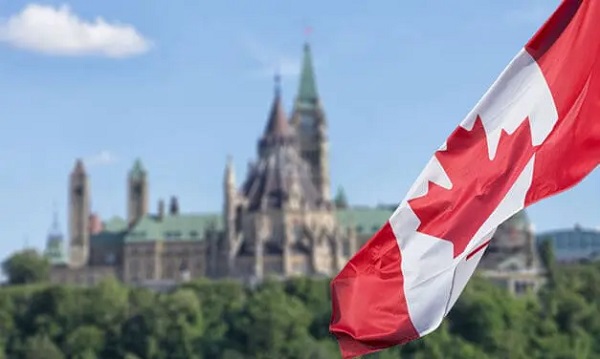Business
Regulatory reform key to Canada’s energy future

This article supplied by Troy Media.
 By Lisa Baiton
By Lisa Baiton
Canada has the resources to lead globally in energy, but outdated rules and investment barriers are holding us back
Canada stands at a pivotal moment. A new federal government offers an opportunity to rejuvenate the economy and rethink our approach to natural
resource development.
Prime Minister Mark Carney’s plan to build Canada into the best-performing economy in the Group of Seven (G7) is achievable, as is his ambition to build from this country’s energy resource-rich foundation. This aligns with the oil and natural gas industry’s calls to play to our strengths in responsible energy development and exports. To succeed, we need a clear, practical strategy that reflects the realities of investment capital in today’s
unpredictable global economy.
Canada has all the ingredients to become the next global energy superpower. What’s missing is the right recipe. Over the past decade, a layering of policies has reduced investor confidence and made Canadian projects less attractive than those in other countries. Billions in capital have shifted to places like the United States, Brazil and Norway, where regulatory processes are clearer, faster and more investor-friendly.
It’s time to rebuild investor confidence and demonstrate that Canada is open for business. That begins with overhauling the regulatory and fiscal frameworks that govern major energy projects. Current regulations are too often unpredictable, excessively long and vulnerable to legal challenges. For example, some Canadian energy projects can take seven to 10 years to gain approval, compared to three to five years in competing jurisdictions. Approval timelines must be firm, reliable and competitive. Projects of national significance need clear, coordinated assessments that uphold environmental integrity while respecting the jurisdictional roles of provincial governments and Indigenous communities. And we must take the politics out of the regulatory process.
It also means rethinking carbon policy. The current system—layered with federal and provincial rules and complex compliance requirements— is inefficient and uncertain. It needs to be reviewed and reformed, together with provinces and industry, to ensure it is competitive with policies in other top oil- and natural gas-producing nations. A model tailored to regional realities and industrial needs, and one that respects provincial jurisdiction, could restore both flexibility and investor confidence. A national policy should drive investment into emissions reduction, not through
production caps, but by simplifying regulation, creating an attractive fiscal environment and protecting export industries while enabling innovation and growth
Let’s be clear: this is not a call to abandon climate goals or environmental commitments. Canadians care deeply about the environment. But they also care about job security, affordable living and Canada’s place in a rapidly evolving global economy. These values are not in conflict. In fact, the Canadian way—our high standards, our innovation, our sense of fairness—can show the world a model of responsible oil and natural gas development.
We must also ensure Indigenous communities are true partners in growth. Expanding Indigenous loan guarantees at scale will help create infrastructure ownership opportunities that generate long-term prosperity. These guarantees enable First Nations to access affordable financing to invest in projects like pipelines and power generation. But such programs will only succeed if Canada is seen as a competitive place to invest. That foundation must come first.
The mood across Canada has shifted. There is broad public support for oil and natural gas development, not just because of the jobs and revenue, but because Canadians understand the role energy plays in our national and economic sovereignty. Recent polling shows most Canadians believe energy development and climate action can go hand in hand, especially when projects support economic growth.
Amid growing instability in the United States—Canada’s biggest competitor for capital—we have a chance to stand out as a stable and trusted economic partner. But this window of opportunity won’t stay open for long.
We must act decisively. That includes eliminating unnecessary barriers such as production caps and embracing investment in technologies that reduce emissions while growing output.
Canadians are ready. Industry is ready. The time has come to build.
Lisa Baiton is President and CEO of the Canadian Association of Petroleum Producers.
Troy Media empowers Canadian community news outlets by providing independent, insightful analysis and commentary. Our mission is to support local media in helping Canadians stay informed and engaged by delivering reliable content that strengthens community connections and deepens understanding across the country
Business
Cutting Red Tape Could Help Solve Canada’s Doctor Crisis

From the Frontier Centre for Public Policy
By Ian Madsen
Doctors waste millions of hours on useless admin. It’s enough to end Canada’s doctor shortage. Ian Madsen says slashing red tape, not just recruiting, is the fastest fix for the clogged system.
Doctors spend more time on paperwork than on patients and that’s fueling Canada’s health care wait lists
Canada doesn’t just lack doctors—it squanders the ones it has. Mountains of paperwork and pointless admin chew up tens of millions of physician hours every year, time that could erase the so-called shortage and slash wait lists if freed for patient care.
Recruiting more doctors helps, but the fastest cure for our sick system is cutting the bureaucracy that strangles the ones already here.
The Canadian Medical Association found that unnecessary non-patient work consumes millions of hours annually. That’s the equivalent of 50.5 million patient visits, enough to give every Canadian at least one appointment and likely erase the physician shortage. Meanwhile, the Canadian Institute for Health Information estimates more than six million Canadians don’t even have a family doctor. That’s roughly one in six of us.
And it’s not just patients who feel the shortage—doctors themselves are paying the price. Endless forms don’t just waste time; they drive doctors out of the profession. Burned out and frustrated, many cut their hours or leave entirely. And the foreign doctors that health authorities are trying to recruit? They might think twice once they discover how much time Canadian physicians spend on paperwork that adds nothing to patient care.
But freeing doctors from forms isn’t as simple as shredding them. Someone has to build systems that reduce, rather than add to, the workload. And that’s where things get tricky. Trimming red tape usually means more Information Technology (IT), and big software projects have a well-earned reputation for spiralling in cost.
Bent Flyvbjerg, the global guru of project disasters, and his colleagues examined more than 5,000 IT projects in a 2022 study. They found outcomes didn’t follow a neat bell curve but a “power-law” distribution, meaning costs don’t just rise steadily, they explode in a fat tail of nasty surprises as variables multiply.
Oxford University and McKinsey offered equally bleak news. Their joint study concluded: “On average, large IT projects run 45 per cent over budget and seven per cent over time while delivering 56 per cent less value than predicted.” If that sounds familiar, it should. Canada’s Phoenix federal payroll fiasco—the payroll software introduced by Ottawa that left tens of thousands of federal workers underpaid or unpaid—is a cautionary tale etched into the national memory.
The lesson isn’t to avoid technology, but to get it right. Canada can’t sidestep the digital route. The question is whether we adapt what others have built or design our own. One option is borrowing from the U.S. or U.K., where electronic health record (EHR) systems (the digital patient files used by doctors and hospitals) are already in place. Both countries have had headaches with their systems, thanks to legal and regulatory differences. But there are signs of progress.
The U.K. is experimenting with artificial intelligence to lighten the administrative load, and a joint U.K.-U.S. study gives a glimpse of what’s possible:
“… AI technologies such as Robotic Process Automation (RPA), predictive analytics, and Natural Language Processing (NLP) are transforming health care administration. RPA and AI-driven software applications are revolutionizing health care administration by automating routine tasks such as appointment scheduling, billing, and documentation. By handling repetitive, rule-based tasks with speed and accuracy, these technologies minimize errors, reduce administrative burden, and enhance overall operational efficiency.”
For patients, that could mean fewer missed referrals, faster follow-up calls and less time waiting for paperwork to clear before treatment. Still, even the best tools come with limits. Systems differ, and customization will drive up costs. But medicine is medicine, and AI tools can bridge more gaps than you might think.
Run the math. If each “freed” patient visit is worth just $20—a conservative figure for the value of a basic appointment—the payoff could hit $1 billion in a single year.
Updating costs would continue, but that’s still cheap compared to the human and financial toll of endless wait lists. Cost-sharing between provinces, Ottawa, municipalities and even doctors themselves could spread the risk. Competitive bidding, with honest budgets and realistic timelines, is non-negotiable if we want to dodge another Phoenix-sized fiasco.
The alternative—clinging to our current dysfunctional patchwork of physician information systems—isn’t really an option. It means more frustrated doctors walking away, fewer new ones coming in, and Canadians left to languish on wait lists that grow ever longer.
And that’s not health care—it’s managed decline.
Ian Madsen is a senior policy analyst at the Frontier Centre for Public Policy.
Alberta
Alberta taxpayers should know how much their municipal governments spend

From the Fraser Institute
By Tegan Hill and Austin Thompson
Next week, voters across Alberta will go to the polls to elect their local governments. Of course, while the issues vary depending on the city, town or district, all municipal governments spend taxpayer money.
And according to a recent study, Grande Prairie County and Red Deer County were among Alberta’s highest-spending municipalities (on a per-person basis) in 2023 (the latest year of comparable data). Kara Westerlund, president of the Rural Municipalities of Alberta, said that’s no surprise—arguing that it’s expensive to serve a small number of residents spread over large areas.
That challenge is real. In rural areas, fewer people share the cost of roads, parks and emergency services. But high spending isn’t inevitable. Some rural municipalities managed to spend far less, demonstrating that local choices about what services to provide, and how to deliver them, matter.
Consider the contrast in spending levels among rural counties. In 2023, Grande Prairie County and Red Deer County spent $5,413 and $4,619 per person, respectively. Foothills County, by comparison, spent just $2,570 per person. All three counties have relatively low population densities (fewer than seven residents per square kilometre) yet their per-person spending varies widely. (In case you’re wondering, Calgary spent $3,144 and Edmonton spent $3,241.)
Some of that variation reflects differences in the cost of similar services. For example, all three counties provide fire protection but in 2023 this service cost $56.95 per person in Grande Prairie County, $38.51 in Red Deer County and $10.32 in Foothills County. Other spending differences reflect not just how much is spent, but whether a service is offered at all. For instance, in 2023 Grande Prairie County recorded $46,283 in daycare spending, while Red Deer County and Foothills County had none.
Put simply, population density alone simply doesn’t explain why some municipalities spend more than others. Much depends on the choices municipal governments make and how efficiently they deliver services.
Westerlund also dismissed comparisons showing that some counties spend more per person than nearby towns and cities, calling them “apples to oranges.” It’s true that rural municipalities and cities differ—but that doesn’t make comparisons meaningless. After all, whether apples are a good deal depends on the price of other fruit, and a savvy shopper might switch to oranges if they offer better value. In the same way, comparing municipal spending—across all types of communities—helps Albertans judge whether they get good value for their tax dollars.
Every municipality offers a different mix of services and those choices come with different price tags. Consider three nearby municipalities: in 2023, Rockyview County spent $3,419 per person, Calgary spent $3,144 and Airdrie spent $2,187. These differences reflect real trade-offs in the scope, quality and cost of local services. Albertans should decide for themselves which mix of local services best suits their needs—but they can’t do that without clear data on what those services actually cost.
A big municipal tax bill isn’t an inevitable consequence of rural living. How much gets spent in each Alberta municipality depends greatly on the choices made by the mayors, reeves and councillors Albertans will elect next week. And for Albertans to determine whether or not they get good value for their local tax dollars, they must know how much their municipality is spending.
-

 Business2 days ago
Business2 days agoOver two thirds of Canadians say Ottawa should reduce size of federal bureaucracy
-

 National2 days ago
National2 days agoDemocracy Watch Renews Push for Independent Prosecutor in SNC-Lavalin Case
-

 Alberta18 hours ago
Alberta18 hours agoPremier Smith addresses the most important issue facing Alberta teachers: Classroom Complexity
-

 Indigenous1 day ago
Indigenous1 day agoConstitutional lawyer calls for ‘false’ claims to end in Canadian residential schools burials
-

 Alberta18 hours ago
Alberta18 hours agoAlberta taxpayers should know how much their municipal governments spend
-

 International1 day ago
International1 day agoItaly set to outlaw Islamic face coverings nationwide
-

 illegal immigration1 day ago
illegal immigration1 day agoLos Angeles declares a state of emergency over ICE deportations
-

 Addictions1 day ago
Addictions1 day agoBC premier admits decriminalizing drugs was ‘not the right policy’








